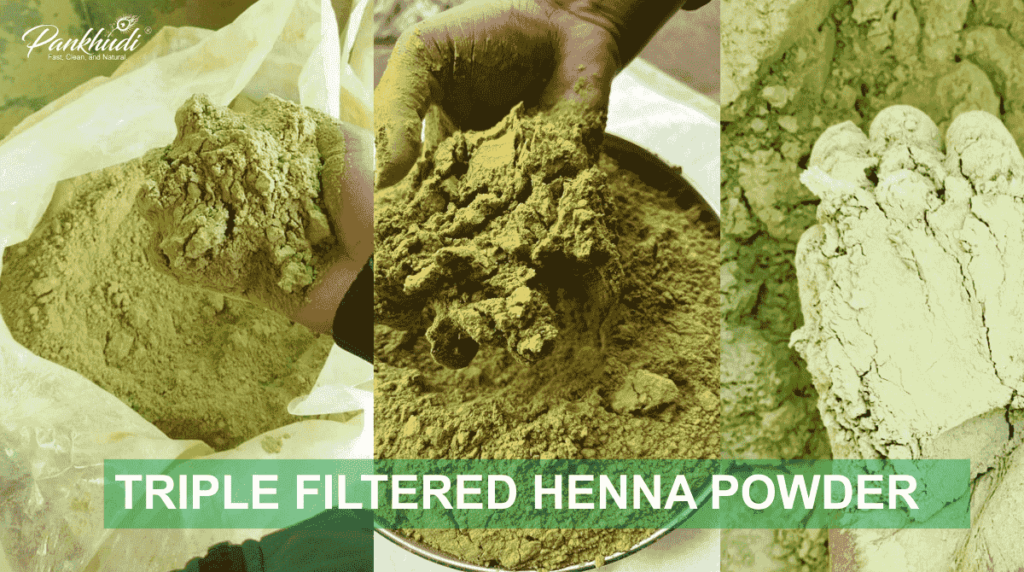
Best Natural Henna Powder for Hair Dye: A Comprehensive Guide
In the quest for healthy and vibrant hair, many are turning to natural alternatives to synthetic hair dyes. One such option is henna powder, a traditional and time-tested solution known for its nourishing and coloring properties. If you’re considering using henna powder for hair dyeing, it’s essential to choose the best natural henna powder to ensure optimal results. This guide will walk you through the benefits of henna powder, how to choose the best product, and tips for achieving the perfect hair color.
Table of Contents
- What is Natural Henna Powder?
- Benefits of Using Natural Henna Powder for Hair Dye
- How to Choose the Best Natural Henna Powder
- How to Use Henna Powder for Hair Dye
- Tips for Getting the Best Results
- Frequently Asked Questions (FAQs)
- Conclusion
1. What is Natural Henna Powder?
Natural henna powder is derived from the dried leaves of the henna plant (Lawsonia inermis). This plant is native to tropical and subtropical regions and has been used for centuries for its natural dyeing and conditioning properties. The henna leaves are ground into a fine powder, which is then mixed with water to create a paste that can be applied to the hair. Natural henna powder is known for its reddish-brown color, which can vary in intensity depending on the quality of the powder and the application method.
2. Benefits of Using Natural Henna Powder for Hair Dye
Using natural henna powder for hair dyeing offers several advantages over conventional chemical dyes:
- Chemical-Free: Natural henna powder contains no harsh chemicals, making it a safer option for those with sensitive skin or allergies. Unlike synthetic dyes, henna does not contain ammonia, parabens, or sulfates.
- Nourishing and Conditioning: Henna has natural conditioning properties that help strengthen the hair shaft, reduce breakage, and add a healthy shine. It also helps balance the scalp’s natural oils, promoting overall hair health.
- Long-Lasting Color: Henna provides a long-lasting color that gradually fades over time, rather than washing out quickly. The color can range from a rich copper to a deep brown, depending on the application method and the natural color of your hair.
- Hides Grey Hair: Henna is effective at covering grey hair, giving a natural-looking color that blends well with your original hair color.
- Eco-Friendly: Henna is a biodegradable and environmentally friendly alternative to chemical hair dyes, which can have a significant impact on the environment.

3. How to Choose the Best Natural Henna Powder
When selecting henna powder for hair dyeing, it’s essential to choose a high-quality product to ensure the best results. Here’s what to look for:
- Purity: Ensure that the henna powder is 100% pure and free from additives or synthetic dyes. The powder should be made from only henna leaves with no other ingredients mixed in.
- Color: High-quality henna powder should be a deep green color, indicating that it has been finely sifted and is fresh. Avoid powders that are brown or have a grayish tint, as these may contain contaminants or fillers.
- Source: Choose henna powder from reputable suppliers or brands known for their quality and authenticity. Organic and fair-trade henna powders are often a good choice, as they ensure high standards of production.
- Packaging: Look for henna powder that is packaged in airtight containers to maintain its freshness. Powders exposed to air for extended periods may lose their potency.
- Reviews and Ratings: Check reviews and ratings from other users to gauge the effectiveness and quality of the henna powder you’re considering. Positive feedback from other customers can be a good indicator of a reliable product.
4. How to Use Henna Powder for Hair Dye
Applying henna powder to your hair is a straightforward process, but it requires careful preparation and application to achieve the best results. Here’s a step-by-step guide:
Step 1: Prepare the Henna Paste
- Mix the Powder: In a non-metallic bowl, combine the henna powder with warm water. The ratio is typically 1 cup of henna powder to 1-1.5 cups of water, but you can adjust based on the length and thickness of your hair. Stir until you achieve a smooth, thick paste.
- Let It Rest: Cover the bowl with plastic wrap and let the paste sit for 8-12 hours to allow the dye to release. You can also add a teaspoon of lemon juice or apple cider vinegar to enhance the dye release.
Step 2: Prepare Your Hair
- Wash and Dry: Wash your hair with a mild shampoo to remove any product buildup. Avoid using conditioner, as this can affect the henna’s ability to adhere to your hair. Dry your hair thoroughly before application.
- Protect Your Skin: Apply a thin layer of petroleum jelly or coconut oil around your hairline, ears, and neck to prevent staining your skin. Wear gloves to protect your hands from staining.
Step 3: Apply the Henna Paste
- Apply Evenly: Part your hair into sections and apply the henna paste generously from roots to ends. Ensure that each section is fully coated with the paste.
- Cover and Wait: Once your hair is completely covered, wrap it with plastic wrap or a shower cap to keep the paste moist. Leave it on for 2-4 hours, depending on the desired intensity of the color.
Step 4: Rinse and Condition
- Rinse Thoroughly: Rinse out the henna paste with lukewarm water. Avoid using shampoo for at least 24 hours to allow the color to fully develop.
- Condition: After rinsing, apply a natural conditioner to keep your hair soft and hydrated.
5. Tips for Getting the Best Results
- Strand Test: Perform a strand test before applying henna to your entire head. This helps you determine the final color and ensure there are no adverse reactions.
- Avoid Heat: Do not use a hairdryer or other heat sources to speed up the dyeing process. Heat can affect the color outcome and damage your hair.
- Maintain Color: To prolong the life of your henna color, avoid excessive washing and use sulfate-free shampoos.
- Hydrate: Regularly condition your hair and scalp to keep it healthy and maintain the vibrancy of the henna color.
6. Frequently Asked Questions (FAQs)
Q1: Can henna be used on chemically treated hair?
Yes, henna can be used on chemically treated hair. However, it’s advisable to wait at least 4-6 weeks after any chemical treatment before applying henna to ensure the best results.
Q2: How long does henna color last?
Henna color typically lasts between 4-6 weeks, depending on hair type, washing frequency, and the products used.
Q3: Will henna cover grey hair effectively?
Yes, henna is effective at covering grey hair. For a more intense color, you can use a two-step process with henna and indigo.
Q4: Is henna powder safe for all hair types?
Henna powder is generally safe for all hair types. However, it’s essential to do a patch test to check for any allergic reactions.
Q5: Can I mix henna with other natural ingredients?
Yes, you can mix henna with other natural ingredients like aloe vera, coconut oil, or essential oils to enhance its conditioning properties and achieve different shades.
7. Conclusion
Choosing the best natural henna powder for hair dye can transform your hair care routine by providing a chemical-free, nourishing, and effective coloring solution. By selecting high-quality henna powder and following the application steps carefully, you can achieve beautiful, long-lasting color while maintaining the health of your hair. Embrace the natural beauty of henna and enjoy the vibrant results it offers!
By following this comprehensive guide, you can make informed decisions about using henna powder for your hair dyeing needs and enjoy the numerous benefits of this natural alternative.





